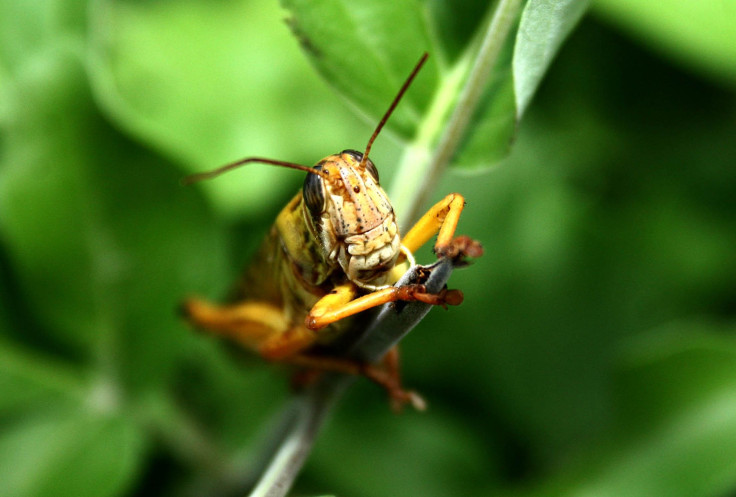How Does The Human Brain Process Smells? A Locust May Hold The Clue: Study

The human brain is capable of processing multiple odors simultaneously as the smells trigger neurons in the brain that stimulate the appropriate reactions and, according to scientists, clues to the secret behind this ability of our brain can be found in the way a locust reacts to different odors.
Barani Raman, an assistant professor of biomedical engineering at Washington University in St. Louis, used locusts, which have a relatively simple sensory system ideal for studying brain activity, for the experiment and found that odors incited neural activity in the brain that allowed the insect to correctly identify the stimulus among other odors.
“We were expecting this result, but the speed with which it was done was surprising,” Raman said in a statement. “It took only a few hundred milliseconds for the locust's brain to begin tracking a novel odor introduced in its surrounding. The locusts are processing chemical cues in an extremely rapid fashion.”
Raman and his team of scientists used a computer-controlled pneumatic pump to administer a puff of odor to a locust, which has olfactory receptor neurons in its antennae, similar to the sensory neurons in a human nose. And, a few seconds after the puff, the locust would get a piece of grass as a reward.
According to scientists, trained locusts anticipated the reward when the odor used for training was delivered. When the insects predicted the reward, they briefly opened their palps, or finger-like projections, close to their mouthparts. The scientists say the locusts could recognize the trained odors even when another odor, which was meant to distract them, was introduced prior to the target cue.
“There were some interesting cues in the odors we chose,” Raman said. “Geraniol, which smells like rose to us, was an attractant to the locusts, but citral, which smells like lemon to us, is a repellant to them. This helped us identify principles that are common to the odor processing.”
According to Raman, this study is the first in a series of experiments seeking to understand the principles of olfactory computation, or how a human brain processes smells.
“Neural activity in the early processing centers does not terminate until you stop the odor pulse,” Raman said. “If you have a lengthy pulse – 5 or 10 seconds long – what is the role of neural activity that persists throughout the stimulus duration and often even after you terminate the stimulus? What are the roles of the neural activity generated at different points in time, and how do they help the system adapt to the environment? Those questions are still not clear.”
© Copyright IBTimes 2024. All rights reserved.






















